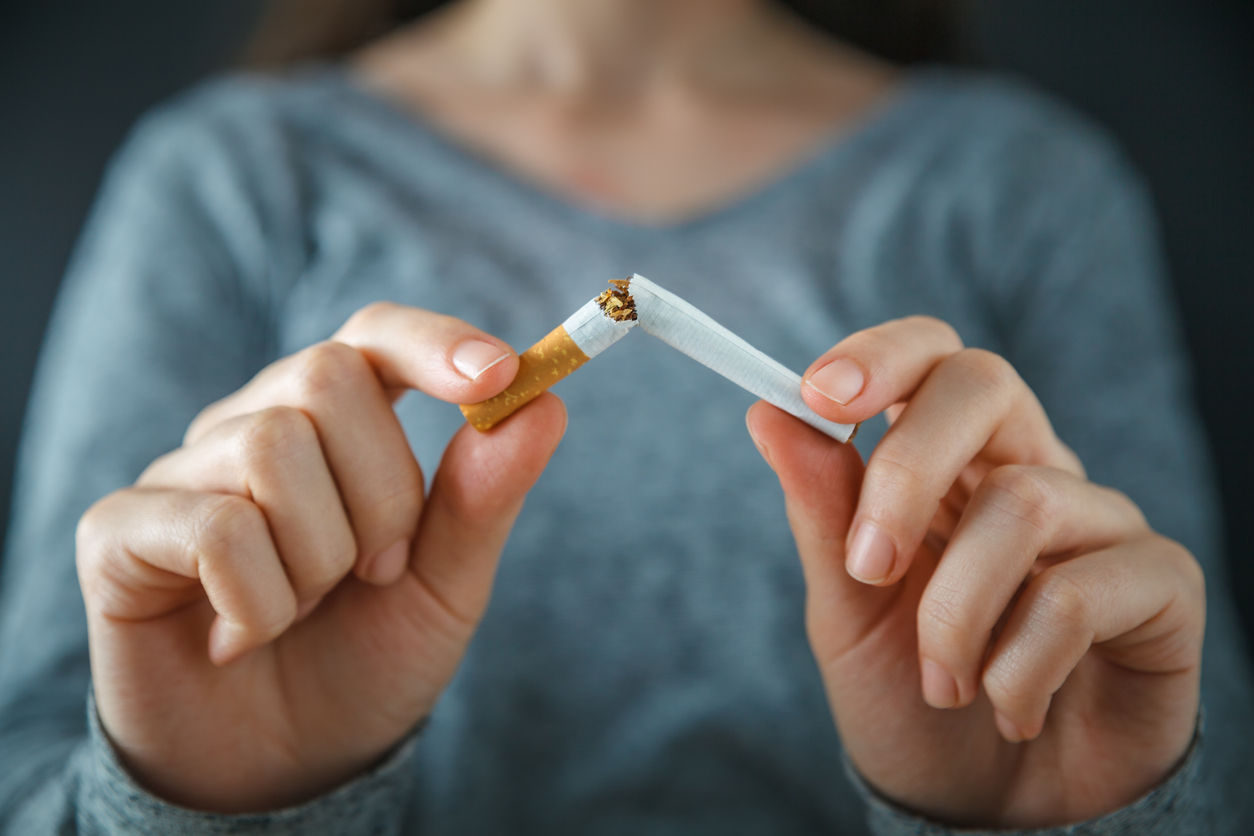Protecting your baby from tobacco smoke is one of the best things you can do to give your child a healthy start in life. It can be difficult to stop smoking, but it's never too late to quit.
Every cigarette you smoke contains over 7000 chemicals and, therefore, smoking when you are pregnant harms your unborn baby. Cigarettes can restrict the essential oxygen supply to your baby. As a result, their heart must beat harder every time you smoke to take in enough oxygen.
Benefits of stopping smoking in pregnancy
Stopping smoking will help both you and your baby immediately. Harmful gases, such as carbon monoxide, and other damaging chemicals will be cleared from your body. When you stop smoking you:
- reduce the risk of complications in pregnancy and birth
- are more likely to have a healthier pregnancy and a healthier baby
- reduce the risk of stillbirth
- reduce the chance of your baby being born too early and experiencing the linked complications such as breathing, feeding and health problems that often go with being premature
- reduce the chance of your baby being born with a low birth weight. Babies of smokers are, on average, 200g (about 8oz) lighter than other babies, which can cause problems during and after labour. For example, they are more likely to have problems keeping warm and are more likely to get infections
- reduce the risk of sudden infant death syndrome (SIDS)
Stopping smoking now will also help your baby later in life. Children whose parents smoke are more likely to suffer from asthma and other serious illnesses that may need hospital treatment. Children who grow up in a home of smokers are also more likely to smoke themselves when they grow up as smoking becomes ‘normalised.’
The sooner you stop smoking, the better but even stopping in the last few weeks of your pregnancy will benefit you and your baby. It is never too late to quit smoking and will always benefit you and those around you.
Secondhand (passive) smoke harms your baby
If your partner or anyone else who lives with you smokes, their smoke can affect you and your baby before and after their birth. You may also find it more difficult to stop if someone around you smokes.
Secondhand smoke can also reduce your baby's birthweight and increase the risk of sudden infant death syndrome (SIDS), also known as "cot death". Babies whose parents smoke are more likely to be admitted to hospital for bronchitis and pneumonia during their first year.
To find out more about quitting and to get support, you or your partner can call Help Me Quit on 0800 085 2219.





